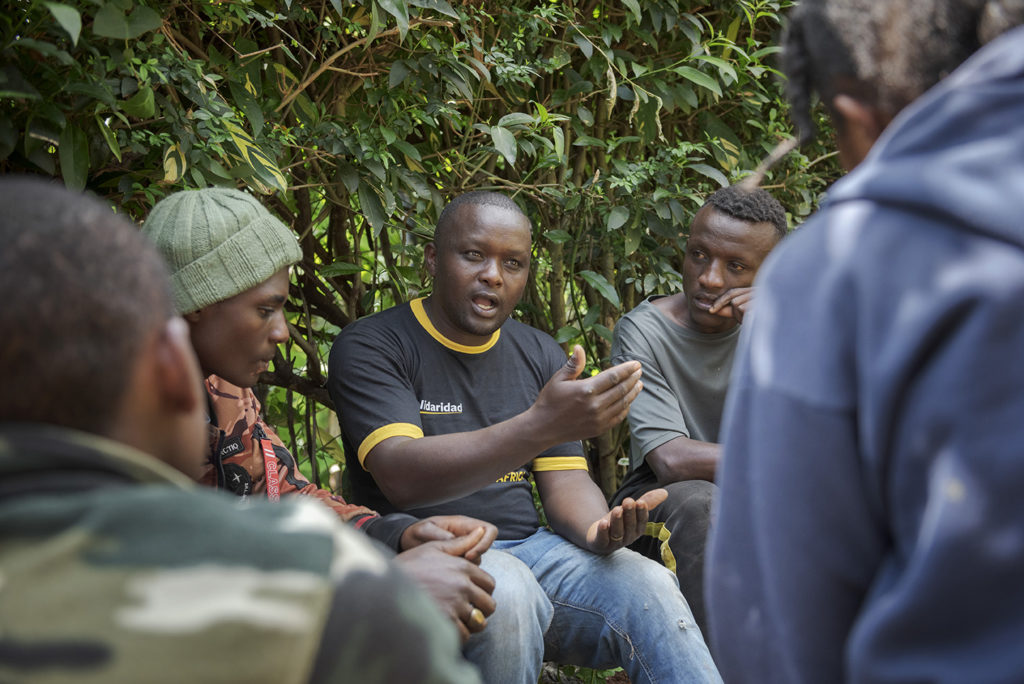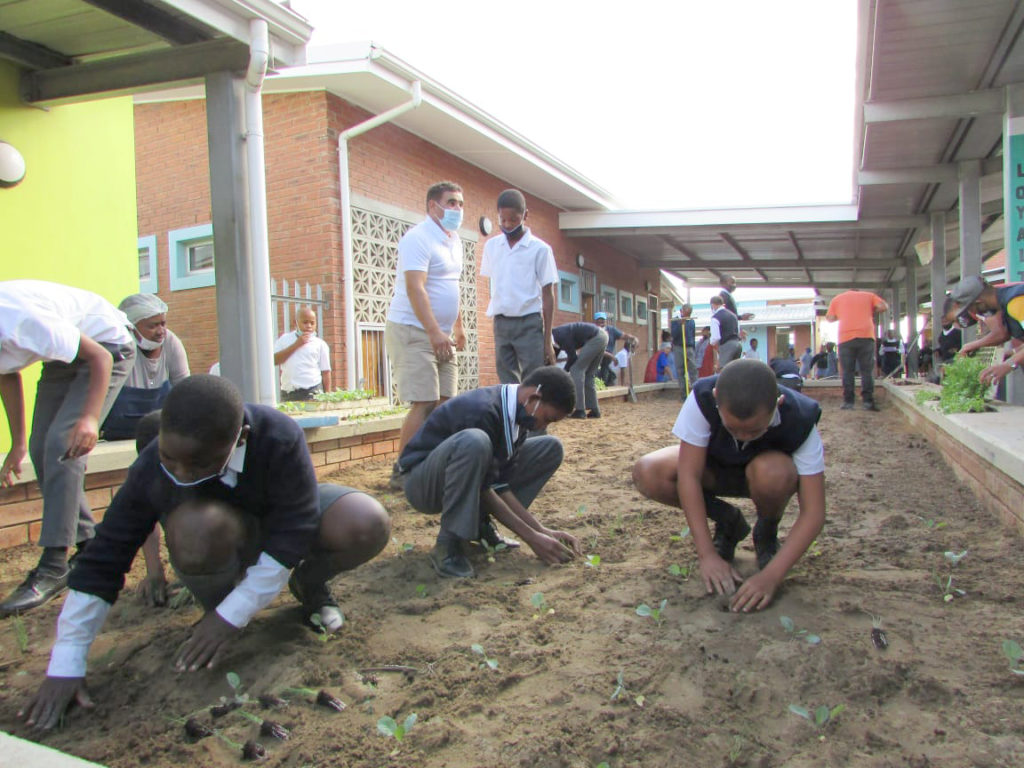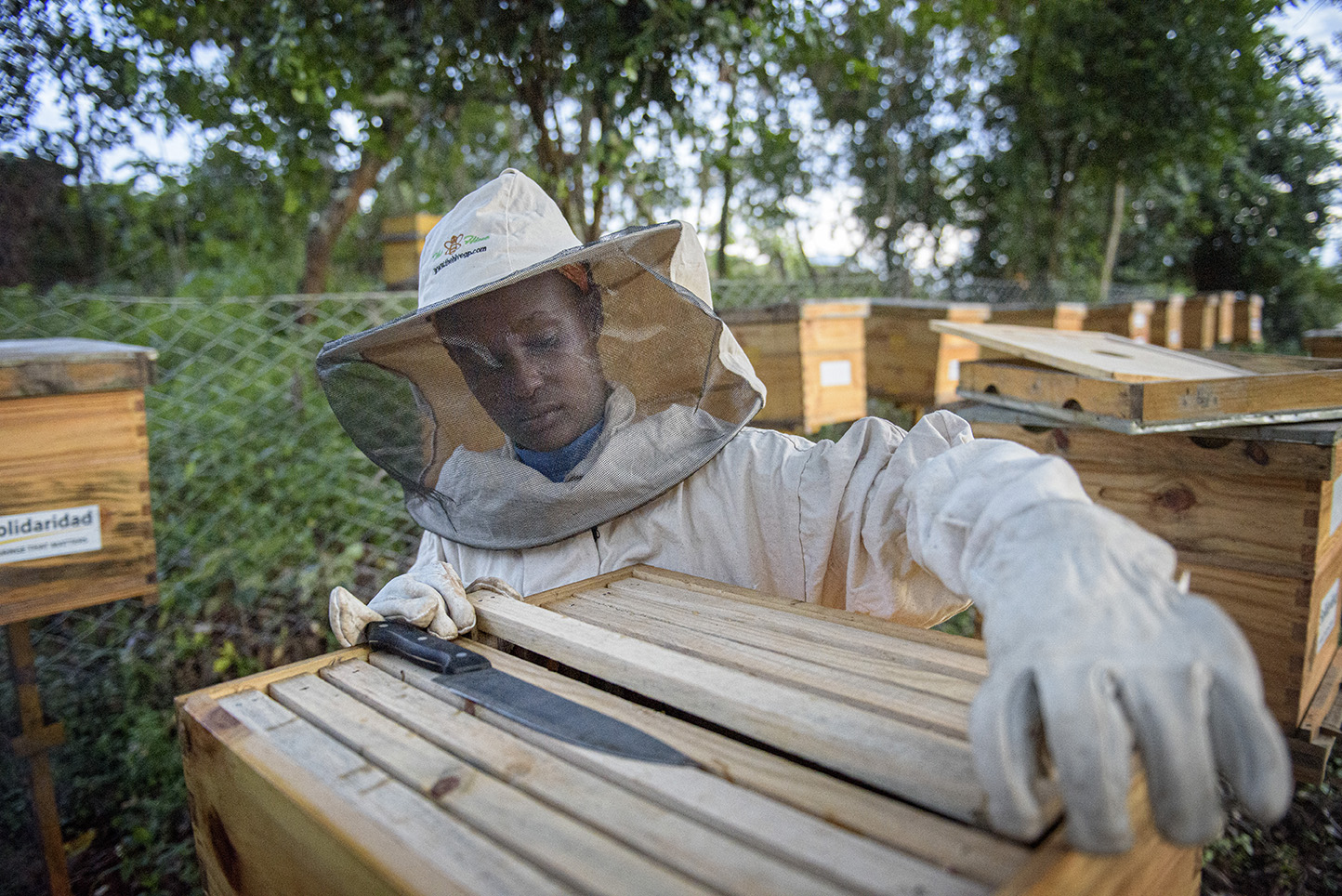Young people’s livelihoods were significantly impacted by health and social measures implemented during the pandemic. Around 73% of youth who were studying part-time or full-time experienced school closures, and only a fraction were able to access educational resources online or through socially-distant learning (ILO, 2020). They also suffered as a result of the decline in extensive and intensive labor supply. Twenty-three percent of young workers aged 18–24 stopped working at the beginning of the health crisis while another 23% of those aged 18–29 reported reduced working hours, resulting in significant reductions in their annual income (ibid).
In the agriculture sector, the global pandemic had a substantial impact on production systems, supply chains and food commodity preferences. While disruptions in both agricultural value chains and markets negatively impacted rural livelihoods, rural youth were disproportionately affected by the crisis, making them more vulnerable to poverty (FAO, 2020b).
In Southern Africa, young agripreneurs experienced high rates of unemployment and underemployment, unstable income, limited access to social services and importantly, financial losses. We must address all these issues in the short and medium-term to alleviate extreme poverty in youth (FAO, 2020.)
Opportunities in agriculture
By 2025 it’s estimated that Africa’s food import bill will increase to over USD 110 billion while the share of Africans living in urban areas will have grown by 70%. Against this backdrop, the agri-sector offers unlimited opportunities for youth, especially in a continent where over 60% of the rural communities rely on agriculture. The African Union, for instance, has set a target to double the total agro-productivity and increase youth employment in the agricultural sector by 30% by 2030. Furthermore, the Jobs for Youth in Africa Strategy of the African Development Bank aims to create 25 million jobs, and equip 50 million youth with skills to improve their employability, by 2025.
These developments aim to create new employment and business opportunities and motivate youth to seek or create better prospects for jobs or income. The answer also lies in the formal, rather than informal, agri-food sector, in order to achieve transformative change for youth employment and entrepreneurship.

Solidaridad’s focus on youth employment and entrepreneurship
At Solidaridad we believe in exploring, testing and proving new concepts to overcome barriers to sustainable youth development. This means adopting innovative approaches that seek to develop young people’s livelihoods in a comprehensive manner. This is rather than focusing on isolated solutions, as this ignores the considerable overlap among the causes and occurrences of youth economic exclusion. Over the past few years, Solidaridad has prioritized initiatives that address the urgency of youth unemployment and create entrepreneurship opportunities through various initiatives. These include the MASO Youth Programme implemented in Ghana by a consortium of six partners led by Solidaridad West Africa and funded by the Mastercard Foundation. This programme reached out-of-school youth aged 17–25 years-old living under the USD 2 per day poverty line in cocoa-growing regions.
In Southern Africa, Solidaridad implemented the AGRILABS Youth Initiative. This initiative recognised the importance of youth participation in agriculture, as well as the need to harness the great potential of young people in development. The project trained 300 learners from three schools in the Eastern Cape, South Africa and six schools in Gauteng, South Africa. Solidaridad also received a grant from the IDC. With this funding, Solidaridad will target 1,072 unemployed youth (among them women, unemployed graduates and out-of-school youth) with the goal of linking them to new job opportunities in farming, while simultaneously strengthening good agricultural practices, including climate-smart agriculture. The project will equip these young people with skills to enable them to provide tailored services to farmers through the use of digital solutions and on-farm activities.
Solidaridad has also:
- trained 2,867 youth in East and central Africa on coffee top-working, pruning and grafting to enable them to offer these services to farmers at a fee.
- trained and supported young people to venture into nursery management and seedling raising.
- supported young farmers to embrace on-farm diversification ventures such as fruit tree farming, vegetable intercropping with coffee, goats and chickens, and goat rearing, to increase their income sources.
- helped young people to join village savings and loans associations to enable their access to finance, financial literacy and business skills.
- created opportunities for youth to participate in agroforestry initiatives to improve coffee productivity and increase farmers’ resilience to climate change through the adoption of climate-smart practices thanks to the National PostCode Lottery funded Climate Heroes project in Uganda.
- worked with youth champions to lobby and advocate for gainful participation and benefits and inclusive policy frameworks in the agriculture sector through our RECLAIM Sustainability! Programme in Kenya, Uganda and Ethiopia.
In all our interventions, we aim to:
- expand young people’s participation in agriculture
- build a strong sense of their worth and
- build a mindset of entrepreneurialism in agriculture and innovation that can be applied to local, national and global economies.

What we’ve learnt
Overall, we have learnt that governments, development partners, financial institutions, private investors and academic and training institutions must work together to achieve transformative youth development. This partnership is needed to follow the holistic approach required to achieve youth economic empowerment targets.
Specific lessons learnt from our youth employment and entrepreneurship programming include:
- Youth employment programmes need to consider gender and age-specific challenges and address them ahead of, and as part of, the intervention.
In the case of MASO, rolling out gender and legal training at the start of the programmes paved the way for enrolment and involvement of young women in the male-dominated cocoa sector. This was facilitated by proactive changes in gender norms. Similarly, focusing on building women-centred local networks and women’s land rights advocates’ associations through national-level advocacy encouraged young women’s participation in cocoa-related activities, promoted collective action and ultimately improved the outcomes of women’s rights and to access land. Targeting older youth to promote cocoa cultivation was more impactful, while younger youth benefited more from business-related enterprises.
- Skills training must be accompanied by private sector engagement, entrepreneurship training and a supply-chain approach to job creation considering the political economy of the country.
Training alone was not enough to affect overall youth employment across value chains and did not necessarily lead to job creation. As such, skills development should not exist separately from the supply side. Similarly, linking youth to existing cooperatives and produce-buying companies supports youth groups in accessing markets across different value chains leading to a mutually beneficial relationship for both young people and companies.
- We must create the right incentives and demand for the use of newer technologies and agricultural methods.
In the face of the agricultural sector’s ever-changing nature, including the effects of COVID-19, climate change, digital technologies, urban growth and changing consumer preferences, farmers need to adapt and innovate to be more resilient and improve their livelihoods (FAO, 2020a). But, before this can happen, young people need to be exposed to new technologies and acquire the necessary additional learning capital to innovate.
- We should encourage financial products that are both adapted to youth and sensitive to the agricultural sector.
For example, the MASO project greatly encouraged young people to access formal and community-based finance through youth savings and loan associations (YSLAs) and mobile money. More effort is needed for young people to accumulate the capital needed to transform their farms into revenue-generating and sustainable businesses. The introduction of digital payments could increase farmers’ productivity with an appropriate level of accessibility and internal controls and systems.
- Further research is needed to assess the type of youth employment interventions, whether agricultural or business, to shed some light on the effectiveness of specific aspects of the training provided.
- Youth entrepreneurship programmes should reflect the specific needs of young people and technological advances.
They should take into account the innovative approaches that motivate youth participation, including communication technology advances.
This opinion piece was written by Precious Greehy, Gender and Youth Lead for Southern Africa and Dr. Catherine Odenyo Ndekera, Gender and Youth Lead for Central and East Africa.
Read more about our work in East and Central and Southern Africa

